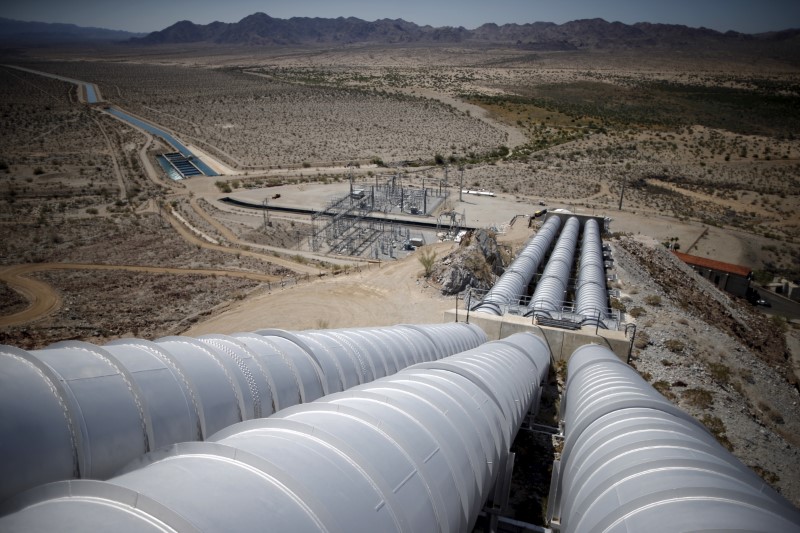By Peter Nurse
Investing.com - Oil markets pushed higher Tuesday, as investors look to policymakers for additional stimulus to help the demand destruction caused by the coronavirus pandemic as well as the potential for a deal to cut supply.
AT 09:00 AM ET (1300 GMT), U.S. crude futures traded 4.1% higher at $24.32 a barrel, while the international benchmark Brent contract rose 3.1% to $27.88. Gasoline RBOB futures gained 4.8% to 42.96 cents a gallon.
Although the Senate’s package of economic support measures, now looking like totalling $2 trillion, has yet to be passed, expectations have risen that a deal will be struck soon.
U.S. Treasury secretary Steve Mnuchin said late on Monday negotiations on the rescue package had made significant progress and that a bill could be passed as soon as Tuesday.
Adding to this is speculation of an alliance between the U.S. and Saudi Arabia to stabilize prices.
U.S. Energy Secretary Dan Brouillette hinted on Monday that a deal between the two major producers was one option to stabilize prices as the price war between Saudi Arabia and Russia shows no sign of abating.
But he also emphasised: “At some point we will engage in a diplomatic effort down the road. But no decisions have been made on anything of that nature.”
Still, these are still theoretical measures, and there is mounting concrete evidence of the damage being done to the global economy.
The latest Eurozone Purchasing Managers' Index plummeted to a record low 31.4 in March - way below the 50-point level that signifies economic expansion.
Markit’s U.S. PMI is due at 9.45 AM ET, while the Richmond Fed’s regional business survey is also expected to follow the dismal example of the Philly Fed index last week.
Barclays responded to all this by slashing its oil price forecasts for 2020, citing considerable downward pressure on the market from a Saudi-Russian price war and demand disruption because of the coronavirus.
The bank lowered its 2020 price outlook for Brent and West Texas Intermediate by $12 each to $31 and $28 per barrel respectively.
"Prices are likely to remain under pressure until the virus situation turns the corner, and if we continue on the projected market balances path, even Saudi Arabia and Russia will not be immune from the price fallout," analysts at the bank wrote in a note.
Meanwhile, "strategic petroleum reserve (SPR) purchases by the U.S government are unlikely to alleviate U.S. producers' pain," the bank said.
The available SPR storage is less than 80 million barrels, according to Department of Energy data, and would amount to a flow of less than 0.5 million bpd when filled over a period of six months, compared with almost 10 million barrels of projected oversupply over the second quarter, it added.
